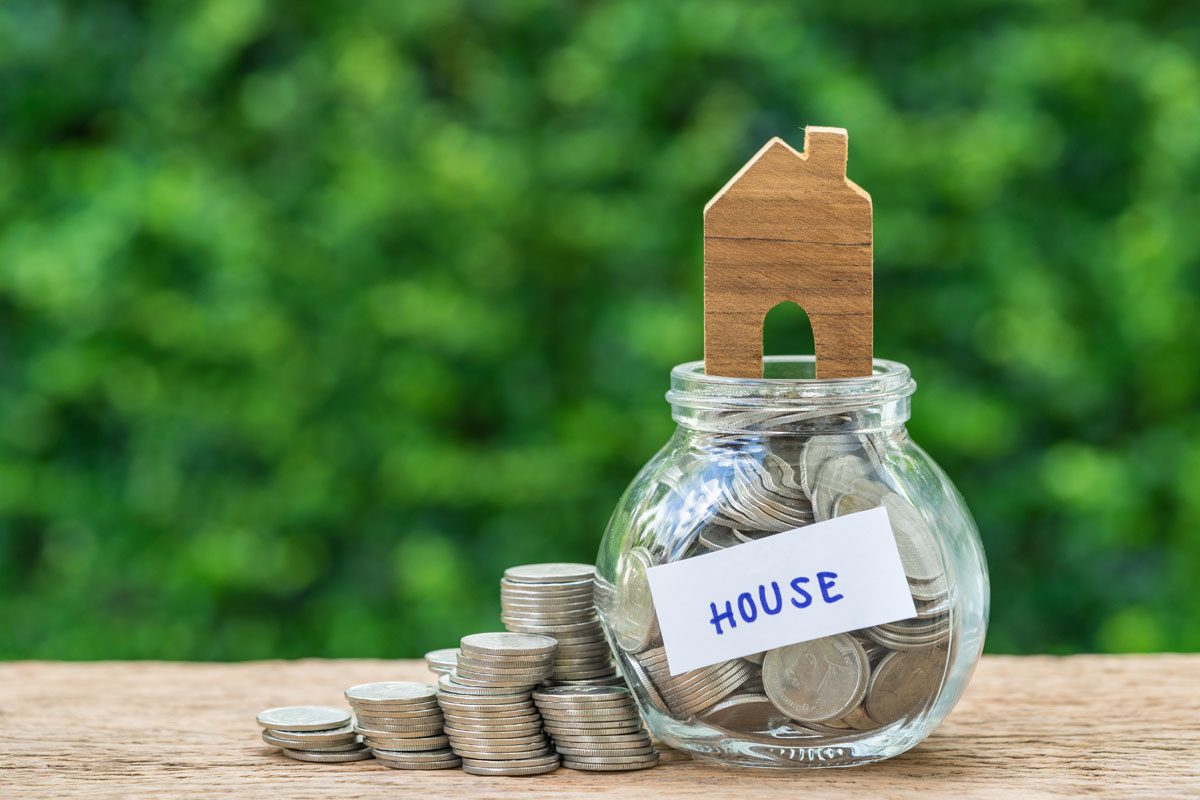Breaking down buying a home: The 7 steps toward getting your mortgage
By Becca Allison
Buying a home is one of the most exciting and stressful moments in life. We are here to help you by providing the proper steps to take to get your mortgage to make the home buying experience go smoother

Sadly, they don’t just give houses away left and right. Those babies cost a big percentage of your income, so it only makes sense that you want to take out a mortgage to pay for your home. But unfortunately, applying for your mortgage is a multi-step process, because nothing important in life can be simple. So, we’ve gathered a list of everything you need to do and be mindful of to keep yourself sane (and able to pay for life’s other expenses) during this crazy time.
- Know Your Limits.Before you get your mortgage, chances are you probably want to pick out the perfect home, right? That way you know how much you need to be lent! Just make sure that perfect home of yours is less than 2.5 times whatever you make in one year. Unless you know you’re about to come into a very large sum of money, keep yourself bound to this amount so that you can stay financially stable.Now you need to check that savings account of yours and see how much you’ve actually saved up for the down payment on your house. Most lenders will prefer that you don’t borrow more than 80% of the amount for the house, which is good for you in the long run anyway, so try to save up at least 20% of the total cost. Keep in mind, however, any sort of homeowner’s fees, insurance and taxes that increase the total cost of this investment so that your home payments don’t take up more than 28% of your total income. (When was the last time you checked that budget of yours?)
- Credit Credit CreditYou need to prove to your lender that you are a reliable borrower. Don’t make the mistake of applying for a mortgage without checking your credit report first! Just don’t! You’d hate to be shocked at a bad credit score, realizing it the same time as your lender, and then getting a bad interest rate or no loan at all. Without checking your credit score, you could be losing money or that home you so desperately want to buy.When purchasing a home is in your plans, be sure to be checking your credit well ahead of time so that you can be building it up before applying for the mortgage. (For reference: a generally high score is 720, and a weak one would be 660.)
- Get Your Ducks in a Row.By ducks, I mean everything your lender will need from you. This would include proof of employment and financial documents showing your income, like recent pay stubs, so they know how much you actually have to spend after taxes, bank statements showing how much money you have to spend, to guarantee you’ll be able to make at least the first few payments in case something happens, and anything that you own such as real estate, investments, or automobiles and all debts.
- Shopping!Well, maybe not the kind of shopping you had in mind. In this case, instead of shopping for things you’re shopping for services. That’s right, we’re shopping for the perfect lender! One of the easiest ways to do this is through word-of-mouth from your other home-owning friends, or even your realtor. Ask who they would recommend (or even who they would NOT recommend) in terms of how timely they are with paperwork, their trustworthiness and lower interest rates. Don’t just take that first lender your friend recommends, though. Take your time and consider a few options. The earlier you do this, the better. It’ll help you get pre-approved making the mortgage application process shorter.Also shop around for a broker, if you think that is something you’ll need. The broker will serve as the middleman between you and your lender, so you may even want to shop around for this guy first, because the broker could serve as another source for which lender you should be using. The downside is you’ll be paying around $400 extra in fees by using a broker, but if you can afford it, and your purchase is already going to be high, having the right broker could save you a lot of stress throughout the whole mortgage and home-buying process.
- Get Pre-approved.I just mentioned that picking your lender early will help you to be pre-approved, but seriously - this is something you don’t want to skip. In this process, you and your lender will agree upon a specified mortgage amount, without you having to commit to purchasing a specific property at that time. This could guarantee that when you do pick that perfect place to call home, your rate is locked-in at the interest of the time you are pre-approved. This specific act of locking-in you rate won’t always happen, it depends on the lender and whether or not interest rates are going up at this point in time: if rates are rising, you will want to lock-in.Regardless, telling your lender that you want to be pre-approved lets them know that you are serious about this purchase, will aid in your relationship with them, and speeds up the process down the road. Only catch is that most pre-approvals only last up to 90 days, so don’t get too ahead of yourself when starting this.
- Picking the Perfect Mortgage.To get your perfect home, you need to find the perfect lender to help you find the perfect mortgage. Perfect, being a relative term here, of course - this is all tailored to whatever will best fit your needs. Even though your mortgage will not necessarily be the same as everyone else’s, the most popular payment plans offer a fixed rate in which your interest does not increase over the duration that you are paying off your loan.These payments can last anywhere from 15 to 20 to 30 years. You also have the option of having an adjustable rate, where the interest will change over the years, often starting off lower to help you out if you are struggling with a lower income at the time of purchase but you know that your situation will improve in the future. Or - you can do a combination of these two. Our introduction to mortgages has more information on this to help you know how to pick the best one for you.
- Think Ahead.Finally, you can’t forget to consider what happens when you finally pay off that loan and are the actual owner of your home. (How refreshing!) Your lender will have some sort of closing cost - extra fees to be paid when you’re done paying off the mortgage, so you should ask them for an estimate on these fees upfront to help you to plan ahead. This should be considered when shopping around for the perfect lender.You also want to think ahead to prepare for the negatives - the event that you don’t get approved for the loan you want. It’s ok if you don’t. Really. It happens. It’s rare to be rejected completely, so you will likely still be approved for a smaller mortgage, and it’s up to you to consider what that next step is: whether it’s waiting and saving up more money or changing your mind on that home decision and looking for a less expensive house.





